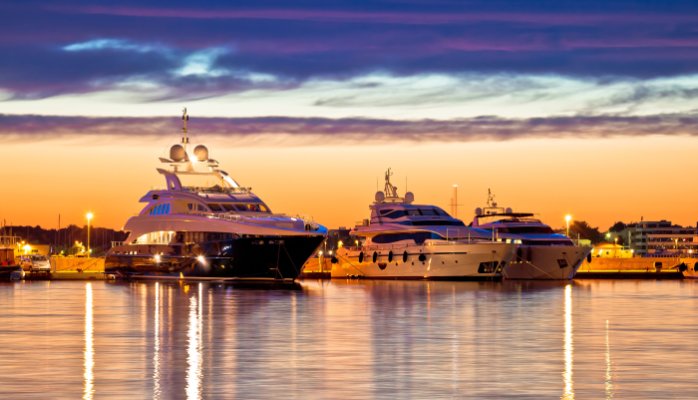There’s been a lot of press recently about the decline in the American Middle Class and the rapid increase in the incomes and net worth of people at the very top of the socioeconomic scale. Increasingly, these high income people have lifestyles that don’t involve mingling with everyone else. They segregate themselves in posh gated communities, send their kids to private schools and camps, and join elite social clubs.
These trends have led travel companies to rethink the experiences they offer to customers, especially the ones with lots of money to spend. They are starting to realize that the ultra wealthy who segregate themselves at home also want a separate, ultra-luxury experience on the road.
It’s hard to blame them. I’d also like a private Disney World tour, or to be ferried from one airport terminal to another in a Porsche. Preferably a convertible!
This rise in ultra-exclusive travel highlights is what I’ve been saying for a long time: a customer experience has to be based on more than rational factors like price. It must appeal to a customer’s emotions and irrational decision making processes. In my forthcoming book, “The Intuitive Customer: 7 Imperatives for Moving Your Customer Experience to the Next Level,” I explain how customers use both rational and irrational factors to make decisions. And I talk about the important role that memory has in customer loyalty.
A recent New York Times article on exclusive cruise ship travel provides a window into the way that luxury travel stratification might impact customer memories – for good or bad.
According to the Times, at Norwegian Cruise Line’s secluded ship within a ship, “The Haven,” guests can enjoy a private pool, sundeck and restaurant, as well as concierge service and a 24-hour butler. If they choose to venture out, they don’t have to mingle with everyone else: they disembark first at ports, and they get the most choice seats at shows.
The Haven is largely invisible to Norwegian’s ordinary passengers, but competitor Royal Caribbean has taken a different tack, letting its regular passengers glimpse the rarefied world in its Royal Suite class. Royal Caribbean says it decided not to have a ship-within-a-ship because ordinary customers increasingly accept that there is a stratification in class, and the wealthiest travelers want to have constant validation that they are special.
So what’s the best tactic? Should the wealthiest customers have an experience so specialized and secluded that no one else even knows about it? Or does rubbing elbows with the ultra-rich improve ordinary people’s experiences and provide validation for the most wealthy customers? Or does it breed resentment?
If an experience is far out of reach for ordinary people – such as $30,000 for a week on a cruise ship – then a glimpse into that world might make for a special memory – sort of like seeing British royalty or Beyonce up close. But it could also make ordinary travelers feel inadequate and dissatisfied with the experience they are having. It’s harder to happily muscle through a buffet line when the people in the next room are having a sit down champagne dinner!
When we conduct customer mirrors, we delve into these sorts of issues. We’ve learned that certain emotions – good or bad – are important because they become embedded in customers’ memories of the trip. Good memories improve customer loyalty. Bad ones destroy it.
Companies that want to cater to the top 1% need to understand the memories they’re creating for both segments of their clientele, or their efforts to attract wealthy clients may drive away the backbone of their business.
How can you cater to the 1% and still provide a great experience for everyone else? Let’s talk about it in the comments section below.
Find out about successful Customer Experiences in our ebook:Unlocking the Hidden Customer Experience. LinkedIn followers can buy for $4.99 with promo code: Hidden50.
If you found this post interesting, you might also enjoy:
Happy Customers: How to Get Them!
Kate Spade Revamps Retail Experiences to Deliver Brand Values
The Hashtag You Hope Your Customers Aren’t Using About You
Colin Shaw is the founder and CEO of Beyond Philosophy, one of the world’s leading Customer experience consultancy & training organizations. Colin is an international author of five bestselling books and an engaging keynote speaker.
Follow Colin Shaw on Twitter @ColinShaw_CX


